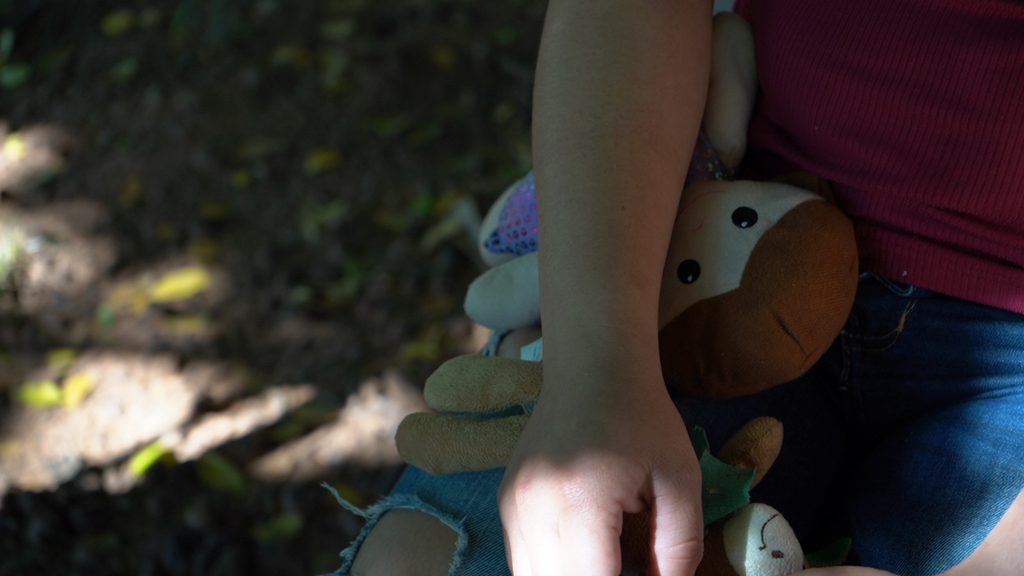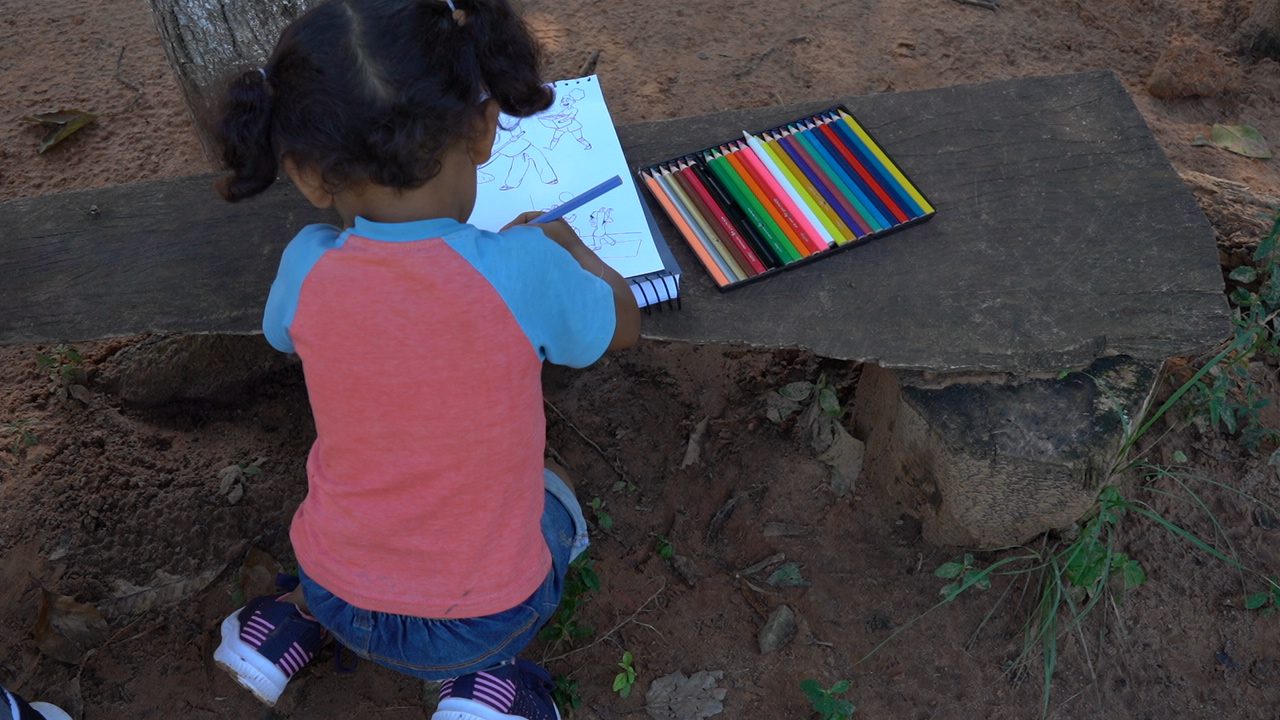Lili, 16, despite the adversities she experienced, found the strength to raise her voice and extend a hand to more girls and young women so that they do not go through what she went through. This is her story.
Her family’s dire economic situation made Lili’s* mother decide to give up daughter when she was just 10 years old. Lili was forced to leave her home, mother and siblings to live with an aunt in another city. “My mother thought it was the best thing for me as she couldn’t look after all her children. I went hoping to have a better life, but soon everything turned into a nightmare,” says Lili.

Lili’s sister, who was a couple of years older than her, was also sent away to live with another aunt in a different city. “It was normal for us to go to work in other people’s houses,” explains Lili.
Child servantry and sexual abuse
At first everything seemed okay, but within a few months of taking over the housework at her aunt’s house, Lili’s older male cousin began to harass her. Lili didn’t know how to react, but felt fear and shame. Later the harassment escalated into sexual abuse.
Traumatised by what was happening, Lili didn’t know what to do. “I couldn’t trust anyone. I felt scared and ashamed. My cousin abused me and I felt helpless. It took me 2 months to tell my aunt what happened. She took it badly. She questioned her son but my cousin didn’t even deny doing it. He only said that he was drunk that night. After that he threatened to kill me again for telling my aunt,” says Lili.
Soon after, Lili discovered she was pregnant and she was sent back to live with her mother. Together they reported the case to the authorities and the prosecutor’s office took action to locate her cousin, but he could not be found and still remains at large.
Sexual violence against girls is widespread in Paraguay. The majority of the time when a young girl becomes pregnant it is a result of sexual violence. The country has one of the highest child and adolescent pregnancy rates in Latin America. At least 2 girls between the ages of 10 and 14 give birth every day, according to data from the Ministry of Health.

When she was 4 months pregnant, a protection order was put in place by the prosecutor’s office which mandated that Lili should be moved to a shelter in the country’s capital city for girls who have experience sexual violence. With no similar protection shelters in Lili’s community, she had not choice but to follow their orders.
Lili was once again separated from her mother and found herself involved in a legal process to prosecute her abuser that she describes as overwhelming. “It was very difficult to carry all that emotional weight,” she shares.
“It was very difficult to carry all that emotional weight.”
Lili
It was a long journey, but slowly Lili found the strength to face her trauma and with counselling began her recovery process.
“As my daughter got older, I lost my fear. She gave me strength and showed me new paths. I spent three years in therapy which helped me learn to trust others again. It was a difficult process, but I learned to love my daughter and myself,” says Lili.
Although she feels much better in herself, Lili still faces moments of anguish and anger. “I don’t want my daughter to be separated from me even for a moment, I live in fear that something will happen to her,” she says.
Raising her voice to help other girls
When Lili was well enough to return to her home community, she joined some of Plan International’s initiatives there, and now takes an active role in parenting classes. She uses her story as a motivation to speak up and prevent other girls from having similar experiences.
Now 17, Lili has resumed her studies and hopes to become a teacher to protect and empower other girls and young women. She uses her voice with strength and courage to call for the protection of girls’ rights and build a better future. “I want to teach girls like my daughter to speak up so they never have to go through what I went through.”
Community development projects
In Paraguay, thousands of children and adolescents are subject to the common practice of criadazgo, an illegal but socially entrenched custom, where children from low-income families are sent to live with other households to perform domestic chores in exchange for food, accommodation and education. In most cases, instead of receiving the care and attention they deserve, children are forced to work long hours and take on responsibilities that are far beyond their capacity and age.
Plan International’s projects seek to improve the living conditions of girls and adolescents in rural communities where they are more vulnerable to harm. By increasing access to comprehensive sexuality education, we aim to reduce the numbers of teenage pregnancies and instances of gender based violence.
*Name has been changed to protect identity


